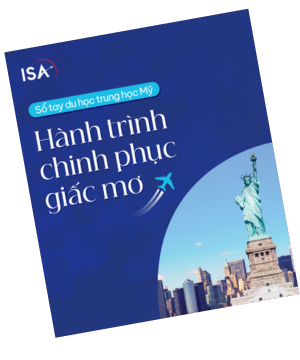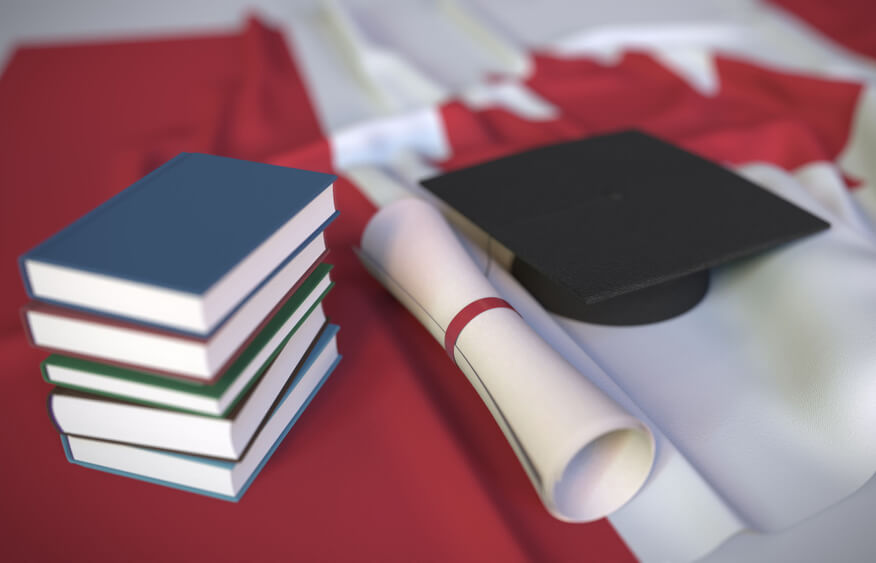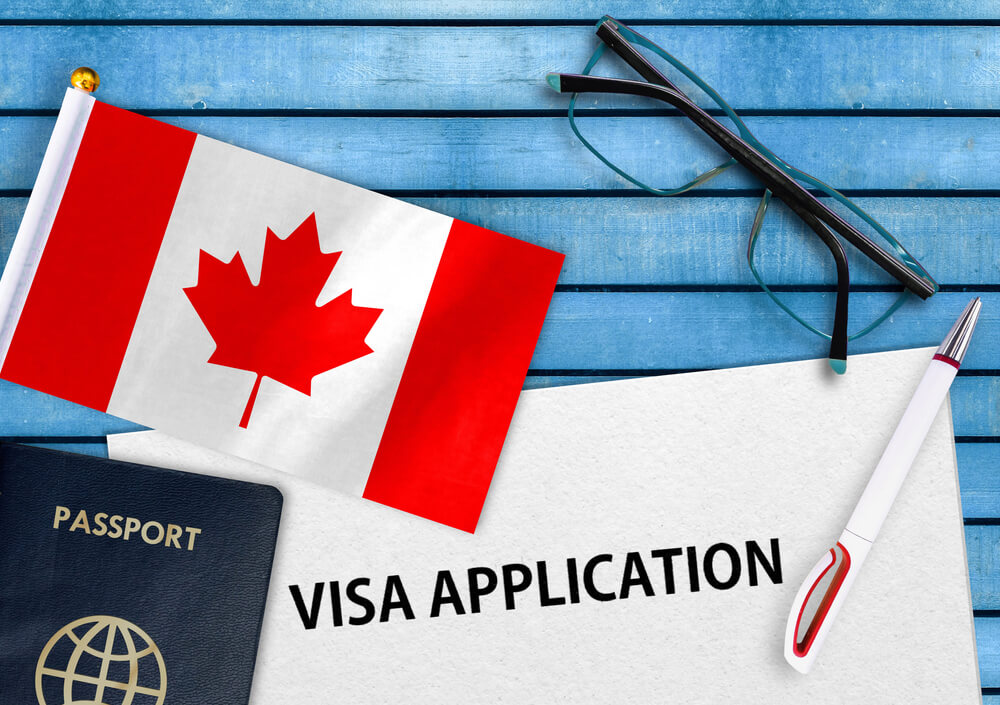Study in Canada and some considerations
Canada is famous for its nature and calm environment. The Government is attentive to the social security conditions to ensure every resident can enjoy the benefits to the fullest. Besides that, Canada’s education system is internationally recognized, affordable study and living costs so it currently attracting plenty of overseas students – especially those in the high school age group.
Once deciding to study abroad, you need to invest not just money but also time to achieve your dream. Due to that, it demands the child and their family to make every right choice to ensure getting exactly what is desired. The education system and policies have brought plenty of opportunities for international students. Canadian education institutes provide a thousand courses in every field like short language courses, business courses, commerce, aviation, arts… A globally recognized Degree, affordable cost, and permission to work part-time in a diverse culture boost students’ confidence and skills to be used in the future. These are the top reasons why Canada should be one of the choices to achieve positive and effective study experiences. So exactly what do you need to prepare? This article should explain it to you.
1. Prepare necessary documents
In regards to students in the high school age group (under 18), necessary documents include a notarized declaration or local authority’s stamp and signature, written by parents or legal guardian to give the rights to the sponsor along with the legal guardian’s identity in Canada.
The legal guardian in Canada will act as the one to solve any emergency in replace of the child’s parents. A notarized declaration will also be signed by the person who was chosen to become the child’s legal guardian.
Students will be given a Study Permit and a Visa just like university students. A Visa application needs to be submitted at least 12 weeks before the start of the course.
Another important document is Enrolment Letter. Before coming to Canada, you need to ensure to bring both the original and copy of the Enrolment Letter. The Letter should also specify Student’s full name, DOB, the course, and the degree, along with the end and start date of the program.
Especially, to study in Québec’s education institute, international students need to obtain a Certificat d’acception du Québec (CAQ) which acts as an entry permit provided by the Ministere des Communautes Culturelles et de I’Immigration du Québec MCCI.
2. Improve your language skills
Communication is key to everything. So before coming to a foreign country, you should advance your language skills. In Canada, two official languages are English and French. Almost 60% of Canadians have a mother tongue as English and another 22% in French. French native speakers mostly reside in Québec, and then Ontario, New Brunswick, and Manitoba respectively. Québec is the one state that gets promulgated the French Language Legislation, with the purpose to protect the most unique culture in North America.
However, the rights of the English language in education are also protected along with the Aboriginal language. Besides that, everyone can either use English or French while communicating. Fluency in one language makes it easier to get a job and quickly adapt to a new life. International students also need to have an English certificate like IELTS or TOELF according to the university’s requirements.
3. Education requirements
To receive the best result while studying in a Canadian high school, Vietnamese students should study for at least 02 years, as this is a stepping tool to get into university (public and private). The requirements to study High School in Canada are the completion of Year 8 to Year 11 in Vietnam, with a good average score and the English proficiency from the intermediate level or higher.
After meeting these requirements, along with the ability to communicate in English or French effectively when interviewing, then you have to complete the first step to becoming a student in Canada. The enrollment date starts in January and September.
4. Arrange an accommodation
If you have relatives or friends in Canada, arrange to live with them for the first 1,2 weeks while you search for a place to rent. If not, you can always book a motel room near the central area to travel around easier. But the best option for students is to live in the school dorm or ask the school to assist them in finding a suitable homestay before arriving in Canada.
5. Purchase a private insurance
Before receiving insurance from the Government, you should purchase private medical insurance beforehand in case any emergency may occur. It can take up to three months to receive Government insurance, so you should always have private insurance as a back-up
6. Research every source
You should research the tools and the sources on the internet to have a better understanding of the area where you intended to stay, the job finding process, rights, and basic laws and rules in Canada. You should also participate in the international student community to get tips and experiences from past students. This allows you to be more active when arriving in Canada. The better you understand the area, the easier you can avoid culture shock.
Recommended website:
- https://www.jobbank.gc.ca/home: job information
- http://www.canadainternational.gc.ca/: general information about Canada
- http://www.ontariotenants.ca/apartments.phtml: Housing renting in Ontario
- http://www.vatoronto.ca/vn/news.php: Vietnamese community in Toronto
7. Culture and People of Canada
Canada is a migration country. You can find almost every race living together in peace here. They respect general rules and cultural differences. Especially, the big city owns an extremely diverse culture. So when you reside and study here, you can experience multiple cultures across the world.
Most Canadians are friendly, so it won’t be a surprise if strangers smile at you on the street. They are also open-minded, willing to accept new ideas and focus on developing a multicultural environment. Generally, like typical Westerners, they are straightforward during a discussion, caring but also respecting your privacy. Residents abide by the rules and the safety of their country comes first.
8. Climate
The climate in Canada changes rapidly. In the residential areas, Canada has a total of 4 seasons. In summer, the temperature can rise to 35°C. While in winter, the temperature is no lower than -15°C. In spring and fall, the weather is temperate compared to the other two. The grassland area is dry and hot in the summer, but is much damper than the central highlands and is temperate in the coastal areas. Spring usually has the most comfortable weather. Fall in Canada is cold and dry but is special for its autumn leaves. There will be snow during winter, however, South Alberta has wind blowing from the direction of Rocky mountain in Southwest America making it less cold. Cities on the West Coast like Vancouver or Victoria are much more temperable in the winter and sometimes have rain.
9. Travel in Canada
Canada has a modern public transport system. The type of public transport to use depend on the location or the city that you lived in. Big cities in Canada are connected so easy to travel between them via plane, bus, taxi, train, or private transport. Information about the route and schedule of buses and trains is available everywhere.
Small cities also have buses and trains, while big cities have a metro. Operating hours and costs are varied between each type, so you should check it through the internet or public support services. In Ontario lake, Toronto city, there is a Hippo which is a boat decorated like a bus to serve the sightseeing needs of visitors.
A driver’s license is recognized internationally, so you can travel around by car after completing the traffic laws course.
There are a lot of means used to travel across the country:
- Long-route bus: the list is provided on the golden page or official websites
- Train: VIA Rail is a long-route train service in Canada
- Aviation: use skyscanners.com to look up the ticket prices to find the most suitable one for your journey
10. Living in Canada
Pick a place near public transport and a shopping mall. International students can choose Homestay which is staying with the locals. All Homestay is certified and has a clear identity, so you do not have to worry and enjoy the benefits of getting to know the culture faster. You can also register to live in the school dorm. After 1 or 2 semesters, you can move out and rent a house or share a flat with your friends. Note that, you need to carefully select one with good security, near your school, residential area, and public transport. You can also ask the school to assist you in finding a perfect rental.
With those that come to Canada to work and reside, you should contact places for rent via their website first and choose a suitable one when arriving in Canada.
In the Vietnamese area, there will be Vietnamese food so food shouldn’t be a problem. Besides, as a multicultural nation, you can taste almost every cuisine around the world in Canada.







